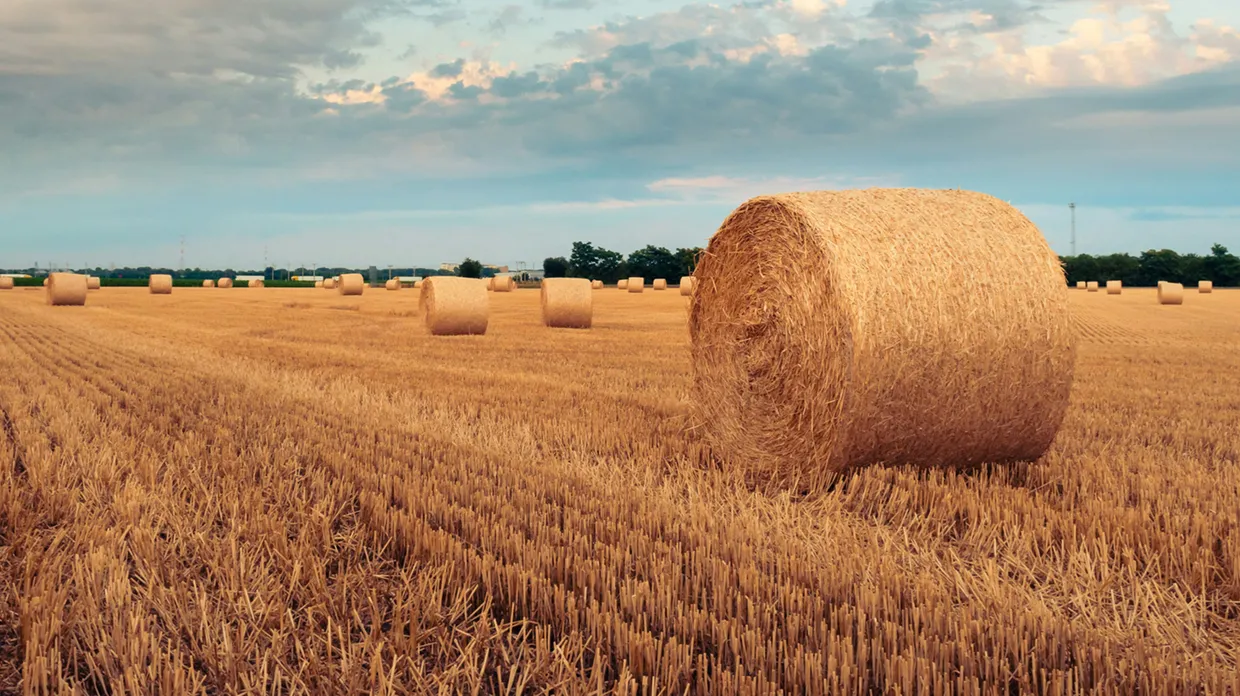Farmers’ protests across Europe and beyond have prompted debate on the role and responsibility of our agriculture sector. How much of the carbon reduction burden should farmers themselves bear? What about the other links in their supply chains – from distributors to retailers, to us the customers?
Sweep’s Chief Impact Officer, Julien Denormandie, former French Minister of Agriculture and author of “To Nourish without Laying Waste” (“Nourrir sans dévaster”), discussed this dilemma in detail with industry leaders at the Financial Times’ Moral Money Summit in London.
Earth, soil, mud.
Whatever you want to call it, it’s one of the most important aspects of nature. Less cute than pandas and seahorses, yes, but it’s fundamental to our ecosystems and the biggest contributor to carbon capture, giving it a special status in the chain of climate change mitigation.
This year the people who manage a large proportion of our soil, farmers, have been in the news a lot, expressing the difficult position they find themselves in, as custodians of key aspects of our environment.
Recent protests here in Europe and further afield have sparked debates and important conversations over the challenges our agriculture workers face. Yes they have a big responsibility as we transition to the low-carbon economy, but equally, they cannot – and should not – be the sole drivers of carbon reduction.
Price versus future
In France, the EU’s biggest agricultural nation, farming activities account for around a fifth of the country’s entire CO2 emissions. In the United States it’s around 10% – still an outsize proportion. Simply put, the farming system must become more environmentally friendly. We do not have a choice. So, the focus then needs to be on how we help farmers to better navigate the challenges that transitioning to a low-carbon economy entails.
Currently, there is little to no difference between the price of organic produce and conventional produce. We’re undercutting local farmers by importing goods from places where environmental and welfare regulations are less strict and therefore where the cost burden on farmers is lower.
It’s little wonder, then, that farmers are frustrated. The burden is being placed on them to find ways to produce in more environmentally-friendly ways, but most of the stakeholders within their value chains are demanding cheaper and cheaper produce. It’s clear that the two demands are simply at odds with one another.
The business of farming as a whole is dictated by market demands, so we need to see bigger shifts in the market to enable farmers to take meaningful action. Production certainly needs to change – but that starts with changes in consumption patterns, placing some of the responsibility back on to corporations and consumers.
Value chain transparency
Taking a more holistic view, if farmers need to produce quality food while emitting less carbon, consumers and corporations need to invest in these products. This change ultimately requires full value chain transparency.
Through a breakdown of the value of products – not just in terms of their health benefits or detriments, but of their environmental impact too – we can start to make this shift and provide the demand in the market that farmers need.
At Sweep, we provide our customers with this breakdown of greenhouse gas emissions. It’s entirely possible to measure not just in terms of overall business emissions but also to break the numbers down to the individual product level too. It’s this granularity of data that the entire value chain needs to be exposed to.
The supply chain shift
In France, we have a card game called ‘Mistigri’. Its premise is to trick other players into taking the “bad luck” cards from your hand – if you succeed in giving all of yours away, you win. It’s a pretty good analogy of what is going on in supply chains, and unfortunately, farmers are the ones being handed all of the “bad luck” cards.
The responsibility for producing healthy, environmentally-friendly, high-welfare food for us all to eat, is trickling down the supply chain from consumers to food retailers and distributors to manufacturers – and finally, to the foundation of the economy, farmers.
Tracking “Scope 3” (supply or value chain) emissions is a vital part of how we stop playing Mistigri in the supply chain. At Sweep, we enable our clients to get clarity, at regular intervals, on their scope 3 emissions – and to take on responsibility in helping suppliers reduce. This is how to become a ‘Forever Company™’ – one that will live on into the low-carbon economy, which takes real action, and supports all the stakeholders within its value chains to reduce too.
To find out more about how Sweep can help you to reduce your supply chain emissions, click here




